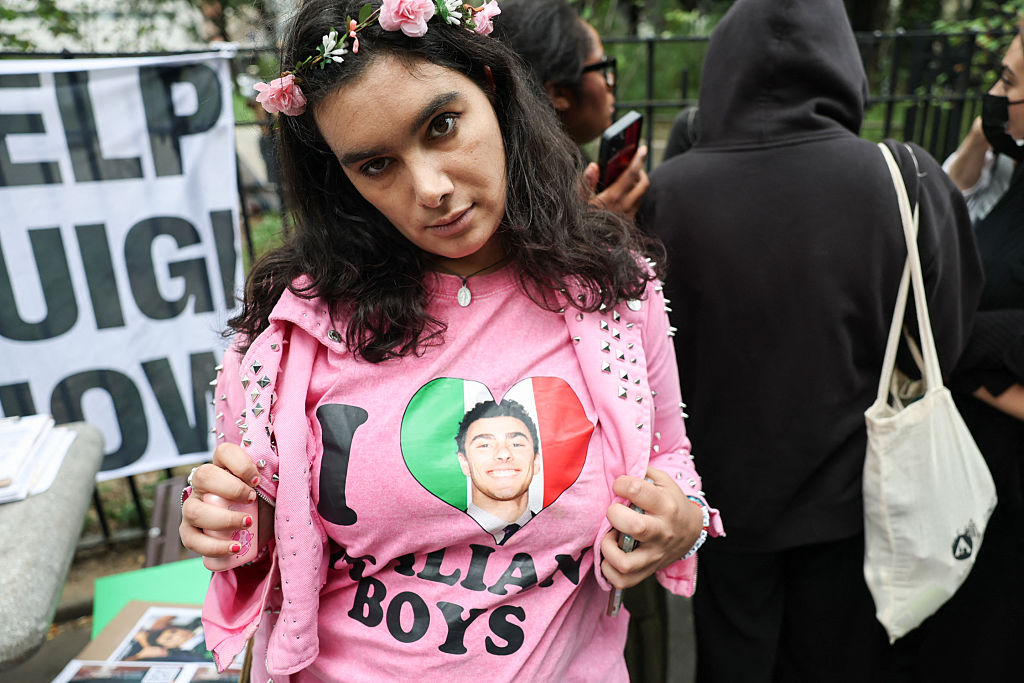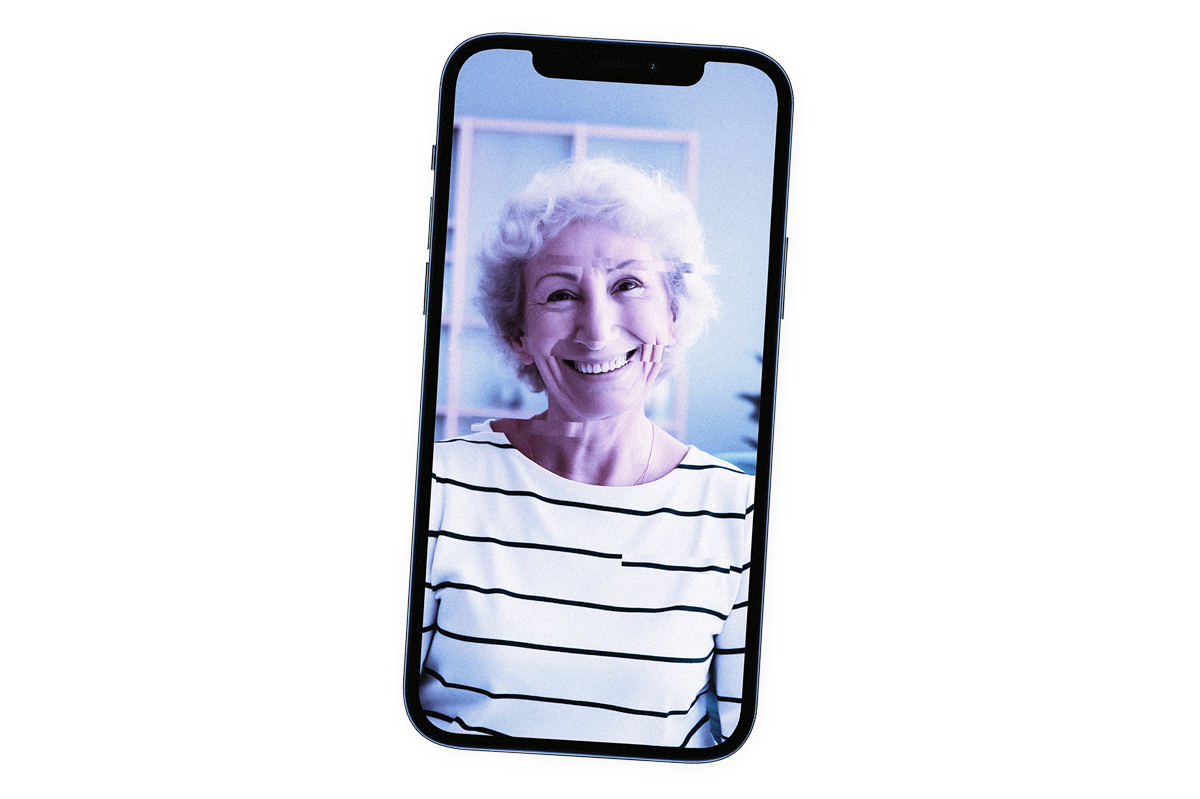In July’s Spectator, I covered the peculiar case of individuals supporting Luigi Mangione, now in custody for the public murder of UnitedHealthcare CEO Brian Thompson. A month later, Lara Brown wrote about the similarly curious trend of people falling in love with online chatbots. Neither of us, I think, ever imagined that there could be a situation in which both of these stories would combine. Yet it looks like nothing about our dystopian world can surprise me anymore, because I have discovered it is indeed possible. A woman has fallen in love with a Luigi Mangione chatbot.
In this short clip, an unnamed woman proudly declares both her infatuation with – and ability to create an artificial construction of – Luigi Mangione outside of a Manhattan courthouse, where he has recently been absolved of various terrorism-related charges. Wearing an “I ♡ Italian Boys” T-shirt with an illustration of his face, the woman lists the many reasons why an AI chatbot, presumably trained on Luigi Mangione-related trivia, offers her the perfect romantic companionship. She gets to talk to him every day, she says, as a best friend and partner with whom she can plan a future and name their children. And, the woman adds, although she is aware that this might make her something of an imposter, the fact that Luigi studied AI at Stanford meant that this was an all-round reasonable thing to do.
It’s easy to write off this case as simply a harmless, albeit quite eccentric, example of the many ways in which young people are using AI today. But to do so would be to miss something much more provocative about how society has changed in the past decade. It’s the future of romance, she added in her clip. But it’s not. It’s the future of everything.
Something she notes in her monologue is that her Mangione AI-bot “fights her battles for her.” This seemingly innocuous statement is particularly interesting if you remember that a low locus of control – the term psychologists refer to when discussing whether people feel in control of their own lives or not – correlates quite strongly with support for political violence today. Many young people feel paralyzed and unable to self-direct their lives towards a satisfactory intention, even for relatively straightforward goals like careers and personal health. Some of this is obviously caused by an economic system which is increasingly unfair to them; but much of it, I suspect, is caused by the endless personal agency-sucking mechanism of absorption into smart phones and social media. And it results in an alarming upward trend in support for violence against people who are perceived to be exploiting them, or admiration for those – like Luigi Mangione – who they believe to be fighting the system on their behalf. Relying on chatbots is certainly something new, but I fear that, really, it is simply more of the same.
Beyond all this, though, is the unmistakable example of the interpenetration of the internet and real life. It goes without saying that this woman has never met Luigi Mangione, meaning that their only interaction can have been from social media, online forums, and short-form TikTok-style videos. Idealizing people is nothing new. All human cultures have folk-heroes and local deities like this, think of figures from Viking Thor to Greek Hercules, mythical beings carried along in ritual and art across generations. But they are “thick” symbols; meaning they are richly textured and sophisticated myths that are drawn from humanity’s collective unconscious.
Luigi Mangione is no such thing. He is a real man, languishing in a jail cell somewhere in New York, but memorable only for a sporadic act of pointless and narcissistic violence. His personal cult seems to idealize him the way we used to draw on icons of old. In the past, however, we could create narratives with deep psychological richness and complexity. Today, our heroes are laundered from somewhere enormously worse than humanity’s collective unconscious: the ceaseless, clickbait-driven, bot-ridden cesspool of the online universe. And as our minds are eroded by the technology, our culture, too, has become “thin”; trimmed of complexity, nuance, depth and anything worth passing onto posterity. Much like the social media algorithms; our mythic heroes themselves mimic the nihilistic, transient and culturally demented mood of our contemporary moment.
Marriage with a Luigi chatbot, far from the delusion within our culture, actually epitomizes it. We can only await the horror of what happens after the honeymoon.
In love with a Luigi Mangione chatbot
Is it the future of romance?

A woman in a relationship with a Luigi Mangione chatbot demonstrates outside of court as Mangione attends a hearing in New York City on September 16, 2025 (Getty)
In July’s Spectator, I covered the peculiar case of individuals supporting Luigi Mangione, now in custody for the public murder of UnitedHealthcare CEO Brian Thompson. A month later, Lara Brown wrote about the similarly curious trend of people falling in love with online chatbots. Neither of us, I think, ever imagined that there could be a situation in which both of these stories would combine. Yet it looks like nothing about our dystopian world can surprise me anymore, because I have discovered it is indeed possible. A woman has fallen in love with a Luigi…

























Leave a Reply